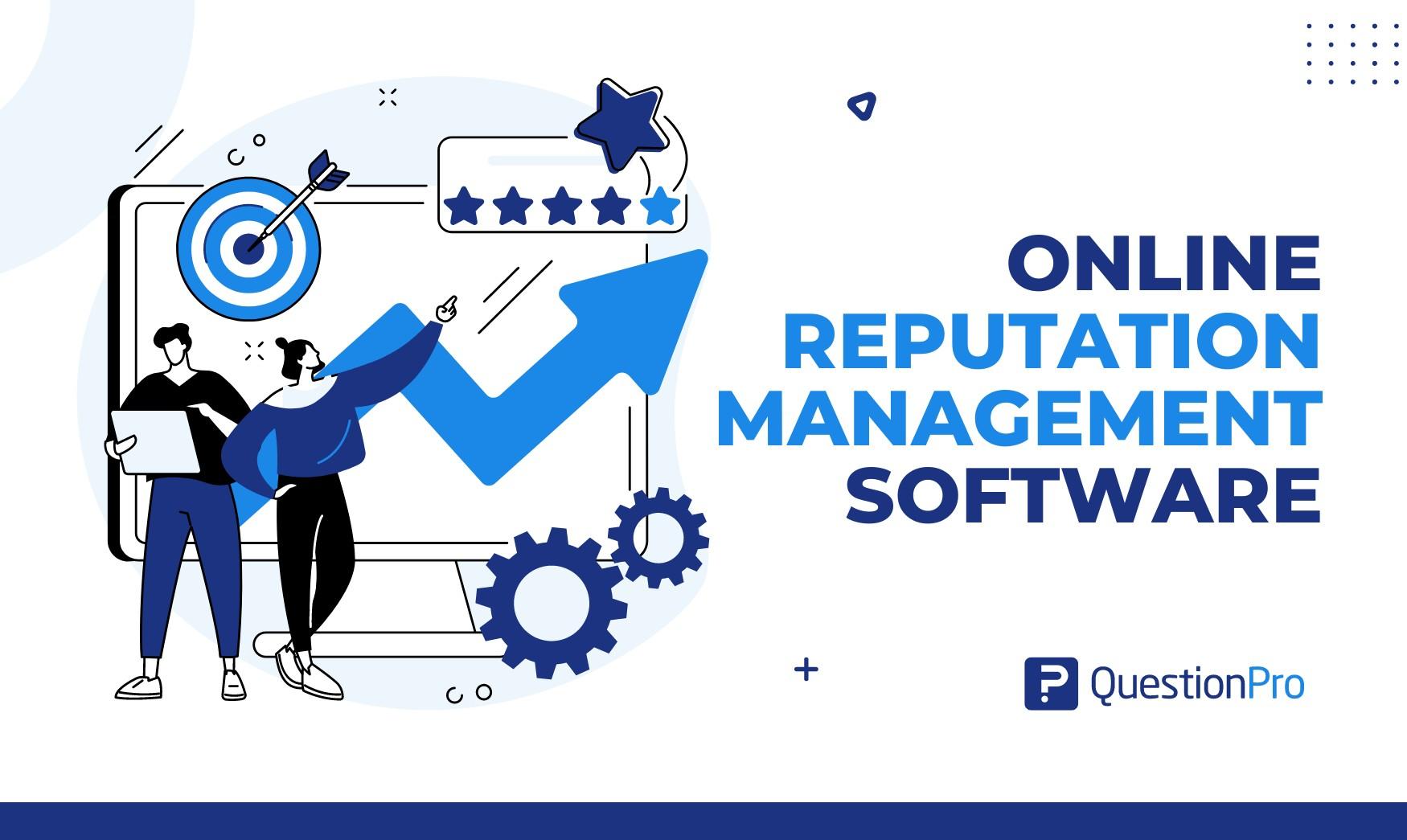In today’s digital landscape, where a single review can make or break a business, managing your online reputation is more crucial than ever. Weather you’re a small startup or a well-established corporation, your brand’s image can substantially impact your bottom line. But fear not! With the right reputation management software, you can take control of your narrative, respond to customer feedback, and turn negative experiences into positive outcomes. In this article, we’ll dive into some of the best reputation management tools available, helping you choose the perfect solution to safeguard and elevate your brand’s online presence. So, grab a cup of coffee, and let’s explore how these powerful tools can transform the way you interact with your audience!
Understanding the Importance of Reputation Management Software
In today’s digital landscape, where information spreads like wildfire, maintaining a positive online presence is crucial for both individuals and businesses. Reputation management software acts as a shield, helping to monitor, manage, and enhance how a brand is perceived online. It’s more than just crisis management; it’s a proactive approach to building trust and credibility.
Key Features of Reputation Management Software:
- Monitoring: Keep an eye on reviews, mentions, and social media interactions across various platforms.
- Review Management: Easily respond to customer feedback—both positive and negative—to show engagement and build relationships.
- Sentiment Analysis: Understand public perception thru advanced analytics and gauge customer sentiments about your brand.
- Reporting tools: Gain insights into trends and performance with extensive reports that can guide your strategy.
Implementing reputation management software can significantly impact your business’s bottom line. A positive reputation correlates directly with customer loyalty and trust,leading to increased sales and repeat business. Here’s a quick look at how reputation affects various aspects of your operations:
| Aspect | Impact of Good Reputation | Impact of poor Reputation |
| Customer trust | high | Low |
| Sales Growth | Accelerated | Stagnated |
| Employee Morale | Enhanced | Diminished |
| Market Position | Strengthened | Weakened |
Along with bolstering your brand’s image, reputation management software allows you to identify and address issues before they escalate into full-blown crises. By keeping a pulse on customer feedback and sentiment, you can make informed decisions that reflect your audienceS needs and concerns. This adaptability can lead to enhanced customer satisfaction, which is essential in today’s competitive marketplace.
Moreover, employing such software is not just for large corporations. Small businesses can also benefit tremendously from reputation management tools. They provide a level playing field, allowing smaller entities to compete effectively by improving their visibility and fostering positive customer interactions. remember, in business, perception often becomes reality, and those who invest in managing their reputation will ultimately reap the rewards.
Key Features to Look for in Reputation Management Tools
When selecting a reputation management tool, it’s essential to focus on features that enhance your ability to monitor, analyze, and improve your brand’s image online. Here are some key functionalities that can make a significant difference in your reputation management strategy:
- Real-time Monitoring: Look for tools that offer real-time alerts and monitoring across various platforms. This feature ensures you’re the first to know about any mentions of your brand, allowing you to respond swiftly and appropriately.
- Sentiment Analysis: Understanding public sentiment is crucial.Choose software that provides sentiment analysis, helping you gauge whether the conversations around your brand are positive, negative, or neutral. This insight can inform your response strategies.
- Comprehensive Reporting: Detailed reports that provide insights into your online reputation are invaluable. Ensure the tool can generate customizable reports that track your progress over time and highlight key trends.
Additionally, integration capabilities are vital for a seamless experience. Many businesses utilize multiple platforms for marketing and customer relations, so your reputation management tool should easily integrate with:
- Social Media Management Tools: Connecting with social media platforms allows you to manage your reputation in the same place where conversations are happening.
- Customer Relationship Management (CRM) Systems: Integrating with your CRM can help you streamline feedback collection and customer interactions.
Furthermore, consider the user-friendliness of the software. A tool that’s intuitive and easy to navigate will save your team time and frustration. Look for software that includes:
- Customizable Dashboards: Personalization allows you to focus on the metrics that matter most to your business.
- Mobile Accessibility: A mobile-friendly interface ensures you can monitor your reputation on the go.
Don’t overlook the importance of customer support. A reliable reputation management tool should come with robust customer support options. Check for:
- 24/7 Support: Access to help whenever you need it can be crucial,especially during a crisis.
- Training Resources: Comprehensive training materials and resources can help your team utilize the tool effectively.
| Feature | Importance |
|---|---|
| Real-Time Monitoring | Immediate response to brand mentions |
| Sentiment Analysis | Gauge public perception |
| Reporting | Track progress and trends |
| Integration | Simplify workflow |
| User-Friendliness | Enhance team efficiency |
| Customer Support | Assistance when needed |
By focusing on these crucial features,you can choose a reputation management tool that not only protects your brand but also actively enhances its image,paving the way for long-term success.
Top Reputation Management Software Solutions You Should Know
In today’s digital landscape, maintaining a positive online reputation is crucial for businesses of all sizes. The right reputation management software can definitely help you monitor, manage, and enhance your brand’s image. Here are some of the top solutions that you should consider:
- Brand24: This tool allows you to track brand mentions across social media, blogs, and news sites. Its real-time monitoring capabilities ensure you stay ahead of any potential reputation issues.
- Reputation.com: Ideal for businesses with multiple locations, this software provides a comprehensive suite of tools for managing customer reviews, surveys, and social media interactions.
- Google alerts: While not a dedicated reputation management tool, setting up alerts for your brand name can help you keep tabs on your online presence without any cost.
- Hootsuite: Known primarily as a social media management platform, Hootsuite also offers reputation monitoring features to help you engage with your audience and respond to feedback effectively.
- Yext: This platform focuses on local SEO and helps businesses manage their online listings, ensuring that your brand information is accurate and up-to-date across various directories.
When selecting the right solution for your needs, consider factors like ease of use, the breadth of features offered, and customer support options. Here’s a quick comparison of some key features to look for:
| software | Real-time Monitoring | Review Management | Social Media Integration |
|---|---|---|---|
| Brand24 | ✔️ | ❌ | ✔️ |
| Reputation.com | ✔️ | ✔️ | ✔️ |
| Google Alerts | ✔️ | ❌ | ❌ |
| Hootsuite | ✔️ | ❌ | ✔️ |
| Yext | ❌ | ✔️ | ✔️ |
By leveraging these tools, you can not only monitor your brand’s reputation but also strategically respond to feedback and enhance your customer relationships. Investing in effective reputation management software can pave the way for long-term success, ensuring your brand remains resilient and reputable in a competitive market.

How to Choose the Right Software for Your Business Needs
When it comes to selecting the most suitable software for managing your business’s reputation, it’s important to consider several key factors. These elements can significantly influence your choice and ultimately contribute to your brand’s online presence.
Understand Your Objectives: Begin by clarifying what you aim to achieve with reputation management software. Are you looking to monitor reviews, analyze customer sentiment, or engage with your audience? Defining your objectives will help narrow down your options and ensure that you select software that aligns with your business goals.
Evaluate Features: Different software platforms offer varying features. Here are some essential features to look for:
- Review Monitoring: Ability to track reviews across multiple platforms.
- Sentiment Analysis: Tools to gauge customer sentiment from social media and reviews.
- Reporting and Analytics: Comprehensive dashboards that provide insights into your reputation health.
- Customer Engagement: Options to respond to reviews and interact with customers directly.
Budget considerations: It’s crucial to establish a budget before diving into software options. Reputation management tools can vary widely in price. compare several options and consider not just the upfront costs but also the long-term value they provide. Sometimes, investing a little more can result in better insights and more effective management.
User Experience: A user-friendly interface can make a tremendous difference in how effectively your team utilizes the software.look for tools that offer intuitive navigation and clear layouts. Take advantage of free trials or demos to assess the usability of the software before making a commitment.
Customer Support: Reliable customer support is an often-overlooked aspect when choosing software. Ensure that the company you are considering offers robust support options, such as live chat, email, or phone support. This can be invaluable when you encounter issues or need assistance with features.
Integration Capabilities: Lastly, consider how well the reputation management software can integrate with your existing tools. Whether it’s your CRM, social media management tools, or email marketing platforms, seamless integration can streamline your operations and enhance data flow across your business.
by taking the time to assess your needs, evaluate features, budget wisely, prioritize user experience, seek strong customer support, and ensure integration capabilities, you can confidently choose the right reputation management software that will empower your business and elevate your online reputation.

The role of Customer Reviews in Reputation Management
In today’s digital landscape,customer reviews have become a cornerstone of reputation management. With increasing reliance on online platforms, businesses must understand how these reviews can shape public perception and influence consumer behavior.
Positive reviews not only enhance a brand’s image but also build trust with potential customers. When prospects see glowing testimonials, they are more likely to engage with your business, believing in the quality of your products or services. Here are a few ways positive reviews can elevate your brand:
- Increased Credibility: A collection of favorable reviews serves as social proof, reinforcing your brand’s reliability.
- SEO Benefits: Google values fresh content, and reviews contribute to local SEO, helping your site rank higher.
- Customer Loyalty: A business that actively engages with customer feedback fosters a sense of community and encourages repeat business.
On the flip side, negative reviews can pose a significant threat to your reputation. though, how you handle criticism can turn a potential crisis into an possibility. responding to negative feedback with grace and professionalism demonstrates that you value customer opinions. Consider these strategies for managing negative reviews:
- Timely Responses: Addressing issues promptly can mitigate damage and show that you care.
- Constructive Engagement: Use criticism as a roadmap for betterment, showcasing your commitment to customer satisfaction.
- Encouraging Positive reviews: After resolving a customer’s issue, ask them to share their improved experience online.
To illustrate the impact of reviews, let’s take a look at a simple comparison of businesses with varying review ratings:
| Business Rating | Customer Engagement | sales Growth |
|---|---|---|
| 1-2 Stars | Low | -10% |
| 3 Stars | Moderate | 0% |
| 4-5 Stars | High | +20% |
As illustrated, businesses with higher star ratings tend to see greater customer engagement and sales growth. Therefore,monitoring reviews with the right tools is essential for any reputation management strategy. A dedicated reputation management software can definitely help you track, analyze, and respond to reviews seamlessly, allowing you to maintain a positive online presence.
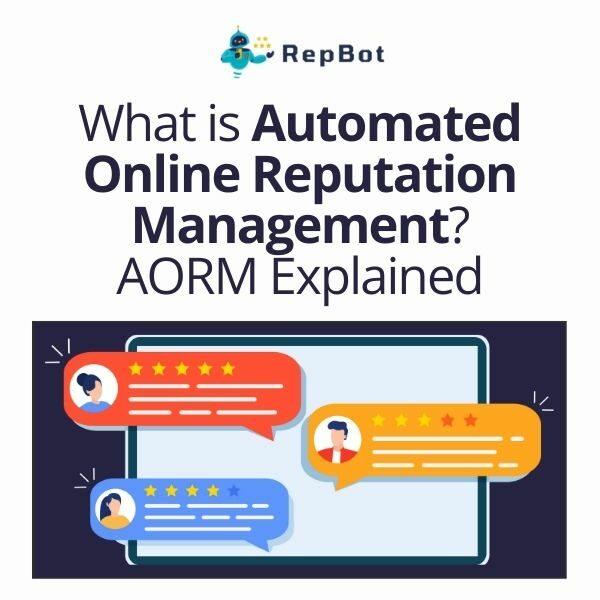
Exploring the Benefits of Automated Reputation Monitoring
In today’s digital age, maintaining a positive online reputation is crucial for businesses of all sizes. automated reputation monitoring tools offer a streamlined approach to managing how your brand is perceived across various platforms. Not only do these tools save you time, but they also enable you to respond to feedback proactively, ensuring your brand remains at the forefront of your customers’ minds.
One of the standout benefits of automated reputation monitoring is the real-time alerts it provides. Businesses can receive immediate notifications about mentions, reviews, or comments, allowing for swift responses to both positive and negative feedback. This immediacy not only helps mitigate potential crises but also showcases your commitment to customer satisfaction.
Moreover, these tools can analyze sentiment, helping you understand the overall perception of your brand within the marketplace. By utilizing advanced algorithms, automated reputation monitoring can categorize feedback as positive, negative, or neutral. This deep understanding allows you to tailor your marketing strategies effectively. Some of the key insights include:
- Identifying trends: Spot patterns in customer feedback that can inform product development.
- Enhancing customer relationships: Engage with customers based on their feedback, which fosters loyalty.
- Benchmarking against competitors: Understand how your brand stands in relation to others in your industry.
Another significant advantage is the comprehensive reporting that comes with these tools. Many reputation management software options provide detailed analytics that can be segmented over time, allowing businesses to track changes in public perception effectively. This data is invaluable when making strategic decisions. Here’s a glimpse of what a sample report might include:
| Metric | this Month | Last Month | Change |
|---|---|---|---|
| Positive Mentions | 350 | 300 | +17% |
| Negative Mentions | 30 | 45 | -33% |
| Neutral Mentions | 120 | 150 | -20% |
Additionally,automated reputation monitoring helps businesses build a more robust online presence. By consistently addressing feedback, you not only improve your star ratings but also increase visibility on search engines. Brands that actively manage their reputation are more likely to attract new customers and retain existing ones.
Ultimately, investing in automated reputation monitoring is about more than just damage control; it’s about fostering a positive dialog with your audience. By staying engaged and responsive, you cultivate a community that feels valued and heard. In a competitive landscape, this connection can make all the difference.
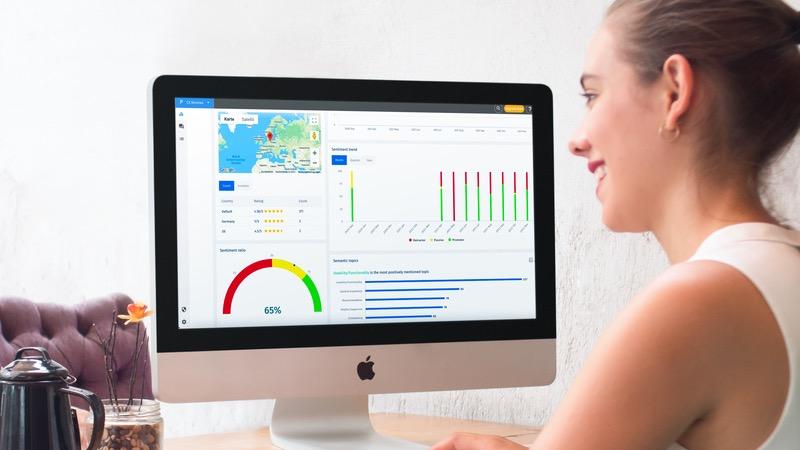
Maximizing Your Online Presence with the Best Tools Available
In today’s digital landscape, protecting and enhancing your online reputation is more crucial than ever. With the right reputation management software, you can monitor, manage, and cultivate a positive presence across various platforms. Here are some of the top tools that can help you take control of your online narrative.
1. Brand24 – This tool provides real-time monitoring, allowing you to track mentions of your brand across social media, blogs, and forums. Its intuitive dashboard makes it easy to analyze sentiments and respond promptly to any negative feedback. Key features include:
- Real-time alerts for brand mentions
- Sentiment analysis
- Comprehensive analytics and reporting
2. Reputation.com – Reputation.com is an all-in-one solution for managing your business’s online reputation. With features designed for multi-location businesses, it helps you manage reviews, generate customer insights, and improve your overall online presence. It offers:
- Review management across multiple platforms
- Customer feedback collection
- Detailed performance reporting
3. Google Alerts – While simple, Google Alerts can be a powerful tool for keeping track of your brand mentions. You can set alerts for specific keywords related to your business and receive notifications whenever they appear online. This ensures you stay informed and can act quickly if needed.
| Software | Key Feature | Best For |
|---|---|---|
| Brand24 | Real-time monitoring | SMEs |
| Reputation.com | Multi-location management | Large enterprises |
| Google Alerts | Keyword monitoring | All users |
4. Hootsuite – Primarily a social media management tool, Hootsuite also offers reputation management features. By scheduling posts and monitoring comments, you can ensure that your brand maintains a positive image. It’s perfect for:
- Engaging with your audience
- Addressing concerns quickly
- Tracking social media performance
Using these tools effectively can help you not only manage but also enhance your online reputation. Each software offers unique advantages tailored to different needs, so consider your specific requirements before choosing the best fit for your online presence.
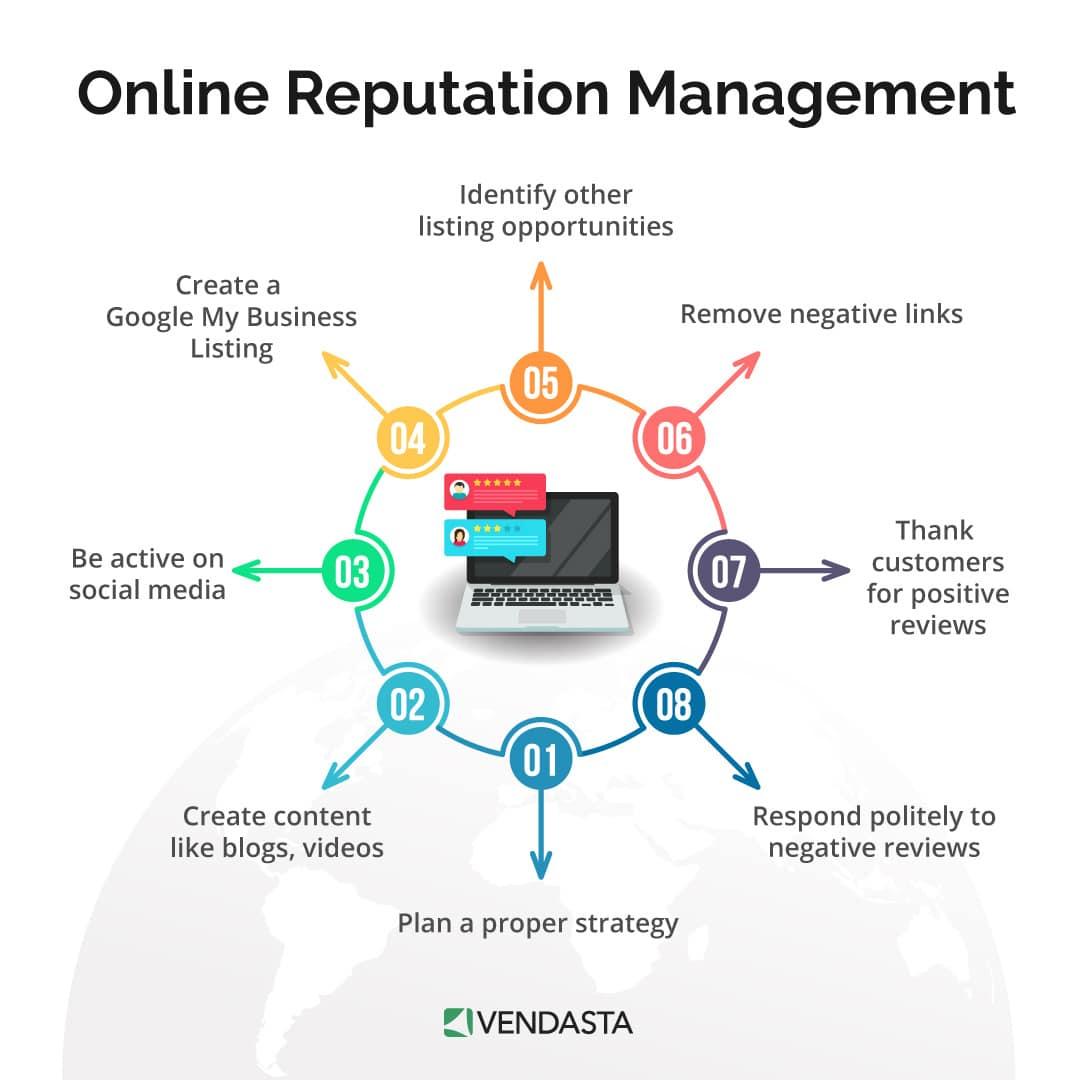
Case Studies: Success Stories with Reputation Management software
Reputation management software has transformed the way businesses interact with their customers and manage their online presence.Let’s take a closer look at a few success stories that highlight the undeniable impact of these tools.
Local Business revitalization
A small local café in Austin, Texas, struggled with negative reviews that where affecting their foot traffic. After implementing a popular reputation management tool, the café was able to:
- Monitor and respond to reviews in real-time, turning negative feedback into positive engagement.
- Encourage satisfied customers to leave glowing reviews online, boosting their overall rating.
- Analyze customer feedback for actionable insights, leading to menu improvements and enhanced service.
Within six months, the café saw a 40% increase in new customers and a significant improvement in their online rating, showcasing the power of proactive reputation management.
Corporate brand Image Restoration
A national retail chain faced a public relations crisis after a negative incident went viral. Utilizing a comprehensive reputation management platform, the company was able to:
- Launch a quick response strategy, addressing the situation transparently and showing commitment to resolve the issue.
- Engage with critics directly through social media, turning detractors into advocates.
- Implement a long-term monitoring system to prevent future issues and maintain a positive brand image.
As a result,the brand’s reputation was restored,and they experienced a 30% increase in customer trust scores within a few months.
Healthcare Provider reputation Boost
A healthcare provider in New York utilized reputation management software to enhance their patient experience. The results were remarkable:
| Before Implementation | After Implementation |
|---|---|
| Only 60% of patients recommended the service. | Over 85% of patients recommended the service. |
| Average rating: 3.2/5 | average rating: 4.7/5 |
By actively seeking feedback and addressing patient concerns,the provider not only improved their ratings but also fostered a culture of accountability and care.

Budgeting for Reputation Management: What to Expect
When it comes to reputation management, understanding the financial landscape can significantly influence your success. Budgeting for reputation management software involves several considerations that go beyond just the software price tag. Here are key factors to keep in mind:
- initial Investment: Most reputation management tools come with a one-time setup fee. Assess this cost against your specific needs. Do you require a comprehensive suite of features, or can you start with a basic package?
- Monthly/Annual Subscriptions: Ongoing costs are typically structured as monthly or annual subscriptions. Compare different platforms to find the best value. Remember, the cheapest option may not always offer the best features.
- Additional Features: Many tools offer add-ons that might enhance your efforts. Consider tools for social media monitoring, review management, or analytics. Decide if these features align with your goals and allocate a budget accordingly.
As you set your budget, it’s essential to anticipate potential costs associated with implementation and training. Many providers offer onboarding services to help you get started, which can be a valuable investment in ensuring your team is equipped to utilize the software effectively.
Moreover, consider the hidden costs of not investing adequately in reputation management. A poor online reputation can lead to lost revenue, decreased customer trust, and long-term damage to your brand. Investing in the right software can pay dividends in maintaining a positive public image.
| Cost Component | Estimated Range |
|---|---|
| Initial Setup Fee | $200 – $2,000 |
| Monthly Subscription Fee | $50 – $500 |
| Training/Implementation Cost | $100 – $1,000 |
| Additional Features add-Ons | $20 – $200 per feature |
lastly, remember to factor in the cost of ongoing monitoring and adjustments. Reputation management is not a one-and-done task.It requires continual oversight, so consider budgeting for dedicated personnel or third-party services if needed. By planning your budget wisely, you can ensure that you choose the right software to not only manage but also enhance your brand’s reputation.
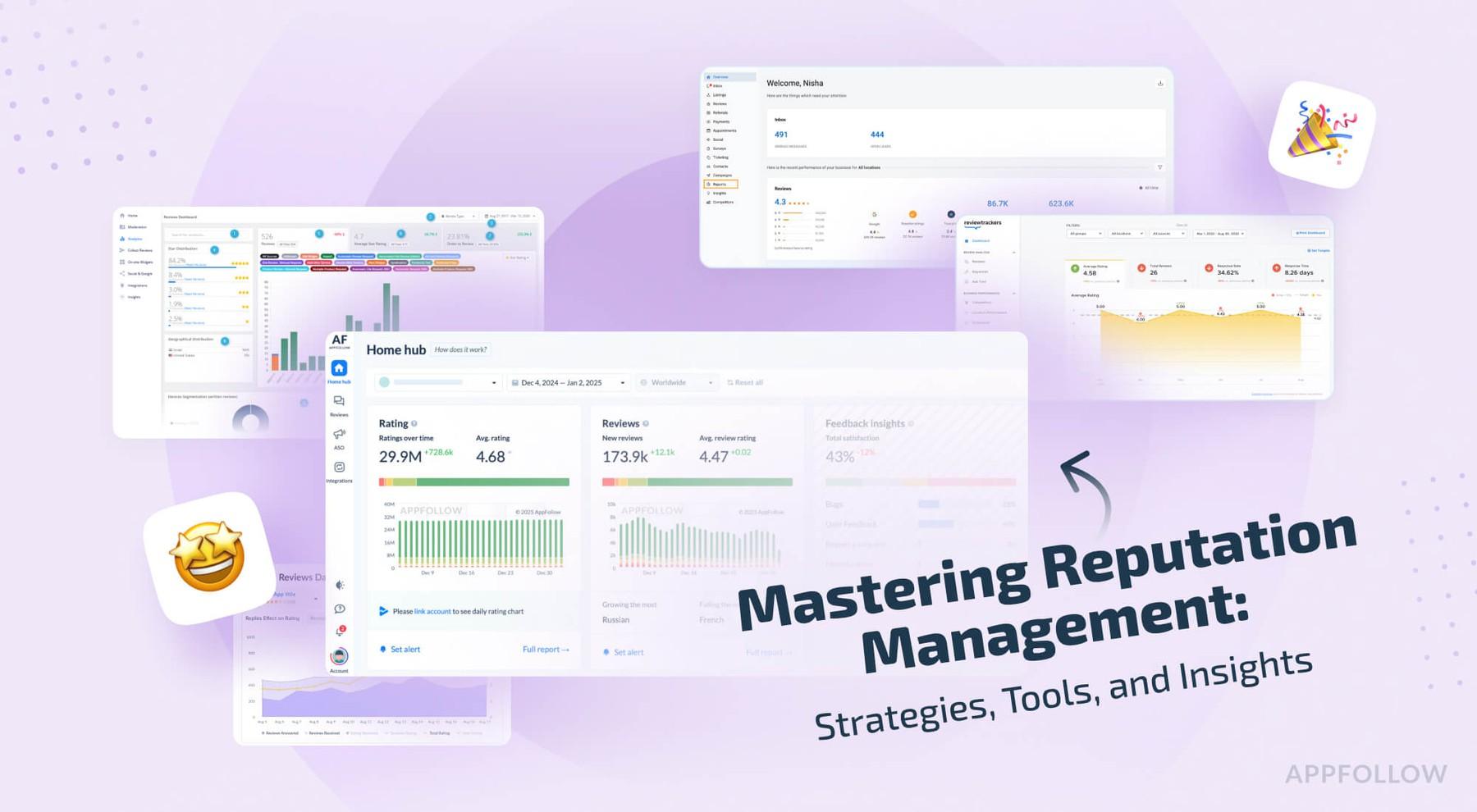
Integrating Reputation Management Software with Your Marketing Strategy
Embracing reputation management software can significantly enhance your marketing strategy,allowing you to build a strong,trustworthy brand image in an increasingly competitive market. By proactively managing your online presence,you can not only mitigate negative feedback but also amplify positive customer experiences,turning them into powerful marketing assets.
Here are several ways to seamlessly integrate reputation management into your marketing efforts:
- Monitor Brand Sentiment: Use reputation management tools to keep track of what customers are saying about your brand across social media and review platforms. Understanding public perception enables you to tailor your marketing messages effectively.
- Enhance Customer Feedback Loops: Encourage satisfied customers to leave reviews and share their experiences. implementing automated requests for feedback can lead to a steady stream of testimonials that can be featured in your marketing materials.
- Respond Strategically: Craft thoughtful responses to reviews, both positive and negative. This not only shows your audience that you value their input but also demonstrates clarity and a commitment to customer satisfaction, which can enhance brand loyalty.
Data from reputation management software can also uncover valuable insights into customer preferences and behaviors. By analyzing trends in feedback, you can identify which aspects of your products or services resonate most with your audience. This information can guide your content marketing strategies, enabling you to create targeted campaigns that speak directly to customer needs.
Take a look at the comparison table below to see how top reputation management tools can align with your marketing strategies:
| Software | Unique Feature | Marketing Advantage |
|---|---|---|
| Yotpo | Customer Review Generation | Leverage UGC (User-Generated Content) for authentic marketing. |
| Trustpilot | Review Integration | Boost credibility with verified customer reviews on your site. |
| BirdEye | Social Media Engagement | Manage and respond to reviews directly from your social channels. |
Additionally, integrating reputation management with your SEO strategy can enhance your online visibility.Positive online reviews can improve your site’s ranking on search engines, making it easier for potential customers to discover your business. Ensure that your online profiles are optimized with relevant keywords and linked to your website to maximize this benefit.
consider training your marketing team on how to effectively utilize reputation management insights in their campaigns. This collaboration can lead to more robust marketing strategies and a unified approach to brand messaging.By making reputation management a core part of your marketing strategy, you’ll foster not just a positive image, but also lasting relationships with your customers.
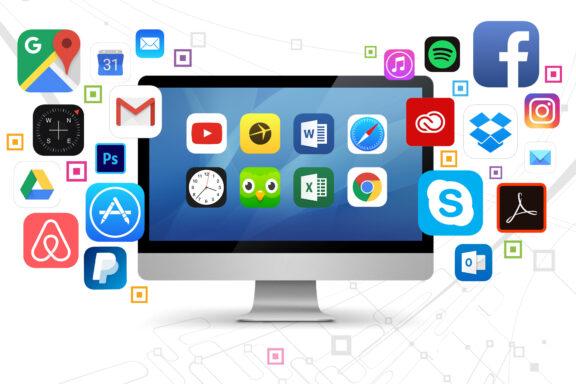
Tips for Getting the Most Out of Your Chosen Software
To truly harness the power of your reputation management software, it’s essential to adopt best practices that amplify its effectiveness. here are some strategies to help you maximize your experience:
- Familiarize Yourself with Features: Take the time to explore all the features your software offers. This can include sentiment analysis, review monitoring, and social listening. Understanding these tools can provide you with a comprehensive view of your brand’s online presence.
- Set Clear Goals: Define what you want to achieve with your reputation management efforts. Whether it’s improving customer satisfaction, increasing positive reviews, or mitigating negative feedback, having a clear set of objectives will guide your use of the software.
- Regularly Monitor Analytics: most reputation management tools come with robust analytics capabilities. Regularly check these insights to gauge your progress and adjust your strategy. Look for trends in feedback and identify areas that need improvement.
- engage with Feedback: Don’t just monitor reviews—interact with them! Responding to feedback, both positive and negative, demonstrates that you value customer opinions. This can enhance your brand’s image and encourage more engagement.
Incorporating these practices will not only optimize your software usage but also enhance your overall reputation management strategy. Moreover,consider the following:
| Feature | Benefit |
|---|---|
| Sentiment Analysis | Understand the emotional tone behind customer feedback. |
| Review Aggregation | Centralize all customer reviews for easy access. |
| competitor Comparison | See how your brand stacks up against competitors. |
| Custom Alerts | Receive notifications for new reviews or mentions. |
By implementing these strategies and utilizing the features effectively, you can turn your reputation management software into a powerful tool for brand enhancement. Remember, the goal is to create a proactive approach to managing your online reputation, setting you up for long-term success in an ever-evolving digital landscape.

Future Trends in Reputation Management You Should Watch For
The landscape of reputation management is evolving rapidly, driven by technological advancements and changing consumer behaviors. As businesses strive to maintain a positive image, several trends are emerging that savvy companies should keep an eye on.
1. AI and Automation: The incorporation of artificial intelligence (AI) in reputation management tools is becoming more commonplace. These technologies can analyze massive amounts of data to identify potential reputation risks and sentiment shifts in real-time. With AI, businesses can:
- Predict consumer reactions to events or announcements.
- Automate responses to reviews and social media mentions.
- Tailor marketing strategies based on consumer sentiment analysis.
2. increased Focus on Authenticity: Consumers today are more discerning than ever. They can spot inauthenticity from a mile away, which is why businesses are shifting their strategies to emphasize transparency and genuine engagement.Companies that share their values, respond honestly to criticism, and involve customers in their narratives will likely see improved trust and loyalty. This means:
- Encouraging user-generated content.
- Highlighting real customer stories and testimonials.
- Communicating openly during crises.
3. Social Media Monitoring Tools: As social media continues to dominate the digital landscape,monitoring these platforms for feedback and trends is crucial. The rise of niche social platforms means businesses must be vigilant in tracking their online reputation across multiple channels. Effective tools can help businesses:
- Identify brand mentions across various platforms.
- Engage with audiences more promptly.
- Analyze sentiment across diverse demographics.
4. Integration with Customer Experience (CX): Reputation management is increasingly linked to overall customer experience. Companies that prioritize CX understand that every interaction can impact their reputation. By leveraging feedback loops, businesses can:
- Utilize customer insights to improve products and services.
- address pain points proactively.
- Enhance post-purchase engagement to foster loyalty.
5.data Privacy and Compliance: As privacy regulations tighten globally, businesses must prioritize ethical reputation management. Ensuring compliance with regulations like GDPR and CCPA not only safeguards customer data but also enhances brand credibility.companies should:
- Invest in data protection technologies.
- Be clear about data usage.
- Educate customers on their rights and protections.
staying ahead in reputation management means adapting to these emerging trends and leveraging new technologies to foster a more authentic and transparent relationship with consumers. Those who embrace these changes will not only safeguard their reputation but also enhance their overall brand loyalty and trust.
Frequently Asked Questions (FAQ)
Q&A on the best Reputation management Software
Q: Why is reputation management critically important for businesses today?
A: Great question! In our digital age, customers rely heavily on online reviews and ratings when making purchasing decisions. A single negative review can influence potential customers and impact your bottom line. Reputation management helps you monitor and improve your image, ensuring that positive feedback stands out and that you can effectively address any negative comments.
Q: What features should I look for in reputation management software?
A: You want software that does more than just track reviews. Look for features like automated review requests, sentiment analysis, social media monitoring, and reporting tools.These tools will help you not only manage your online presence but also gain insights into how your brand is perceived. Plus, integration with other marketing tools can be a game-changer!
Q: Can you recommend some of the best reputation management software options?
A: Absolutely! A few top contenders include:
- Podium – Perfect for businesses looking to increase reviews and engage customers through SMS.
- Birdeye – Offers comprehensive tools for review generation, monitoring, and customer feedback.
- Reputation.com – A robust platform for large enterprises that need extensive monitoring and management.
- trustpilot – Ideal for those wanting to leverage user-generated content and strengthen their brand through reviews.
Each of these platforms has its strengths, so consider your specific needs when choosing!
Q: how much should I expect to spend on reputation management software?
A: Costs can vary widely based on features and the size of your business. Some basic plans start as low as $29 per month, while more comprehensive software can cost hundreds per month. Remember, investing in reputation management is investing in your brand’s future—frequently enough paying off in increased sales and customer loyalty.
Q: How can I effectively use reputation management software?
A: Start by setting clear goals. Do you want to increase the number of positive reviews? Monitor social media mentions? Once you know your goals, use the software to track progress regularly. Engage with customers by responding to reviews, both positive and negative. This not only shows that you care but also helps build trust with potential buyers.
Q: What are some common mistakes to avoid with reputation management?
A: One major pitfall is ignoring negative reviews. It’s crucial to address them head-on rather than letting them linger. Another mistake is not leveraging positive feedback; showcase your best reviews on your website and social media! Lastly,don’t wait too long to respond—timely engagement can make a world of difference.
Q: can reputation management software truly improve my business?
A: Definitely! By proactively managing your online reputation, you can not only mitigate damage from negative reviews but also amplify the positive experiences of happy customers.This can lead to increased trust,higher conversion rates,and ultimately,greater revenue. It’s about creating a positive narrative around your brand!
Q: What’s the first step I should take if I’m ready to implement reputation management software?
A: start by assessing your current reputation. Look at existing reviews,customer feedback,and social media mentions.Then, identify the key features you need from the software to address your weaknesses. Once you have a clear picture, you can choose the right tool to help elevate your brand’s reputation!
Ready to take control of your online reputation? With the right software, you can shape how customers see your business and build lasting trust. Don’t wait—start your journey to a stellar reputation today!
Wrapping Up
In today’s digital landscape, maintaining a stellar reputation is more critically important than ever. whether you’re a small business owner or a marketing professional, investing in the right reputation management software can make all the difference. By leveraging these tools, you can not only monitor your brand’s online presence but also actively shape and enhance it.
So, why wait? With so many robust options available, take the plunge and explore the software that best fits your needs. Remember, a positive reputation isn’t just about damage control—it’s about building lasting relationships with your customers and standing out in a crowded market.As you embark on this journey, keep in mind that the right software can be your best ally in crafting a compelling narrative around your brand. don’t just react to feedback; take charge and turn every interaction into an opportunity for growth. Your reputation is your most valuable asset—invest in it wisely, and watch your business thrive!

